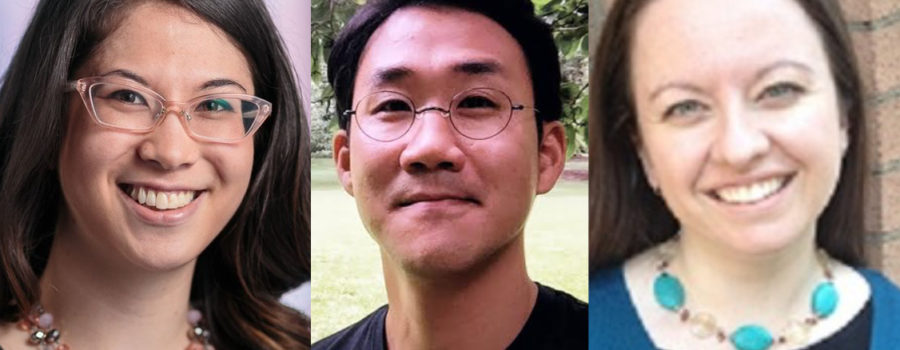Getting a tenure-track job is a highly competitive process, especially at one of the 115 universities categorized as “R1” or research intensive and doctoral-degree granting. For the Emotion & Cognition Lab, 2018 was a banner year, with three former lab members planning to start tenure track positions at R1 universities in the fall. Bruna Martins, who completed her Ph.D. in Clinical Psychology while working in the Emotion & Cognition Lab, will start a position as assistant professor at University of Massachusetts, Amherst. Bruna had just finished her Ph.D. focusing on age difference in emotion regulation strategies and was a few months into her clinical internship when she interviewed for the job. “I learned about the position and it seemed like an uncanny fit- they were looking for a neuroimaging researcher with aging interests, and also hoping to develop their clinical training program in Geropsychology. I applied even though I was not planning to apply for academic jobs for another year. They were very accommodating and allowed me to postpone for a year while I completed my clinical post-doctoral fellowship.” At UMass Amherst, Bruna will be part of strong clinical program and psychology department with a new neuroimaging facility.
Tae-Ho Lee, who completed his Ph.D. in Brain and Cognitive Sciences while working in the Emotion & Cognition Lab, will start a position at Virginia Tech in their Developmental Science area of the Psychology Department. Tae-Ho’s graduate work focused on how emotional arousal affects attention and one particularly challenging project he led (involving getting both younger and older adults to agree to have their brains scanned while they anticipated and experienced small electrical shocks) was recently published in Nature Human Behavior. In his final year of graduate school, Tae-Ho realized that it could be really interesting and informative to use some of the neuroimaging pattern analysis methods to indicate similarity of brain activity patterns between parents and their children and how this relates to emotional development in developing children. Pursuing this vision meant switching his focus of research to developmental neuroscience but he managed to pull this off and published multiple papers using this approach in just a couple of years as a postdoctoral fellow at the University of North Carolina.
Sarah Barber, who completed a postdoctoral fellowship in the Emotion & Cognition Lab after receiving her Ph.D. in Cognitive Psychology at Stony Brook University, will be moving from an assistant professor position at San Francisco State University to one at Georgia State University. “I have really enjoyed working at San Francisco State University and I will miss my colleagues and students. However, I am extremely excited to have this new job opportunity. I am looking forward to working with PhD students and being closer to my family in the Southeastern part of the US.” While in the Emotion & Cognition Lab, Sarah generated some surprising findings on how stereotype threat affects older adults’ performance and she has been continuing to work on the topic, with her research funded by R01 and R21 grants from the NIA and a recent high-profile sole author review paper in PPS.
In 2015, two other former lab members also started tenure track positions at R1 universities. Nichole Lighthall, who completed her Ph.D. in Gerontology while working in the Emotion & Cognition Lab (and who was with the lab from its first year at USC), is currently an assistant professor at University of Central Florida. Steven Greening, who completed a postdoctoral fellowship in the lab after receiving his Ph.D. at the University of Western Ontario, is currently an assistant professor at Louisiana State University.
We wish these impressive scientists all the best in their research programs and in life on the tenure track!


